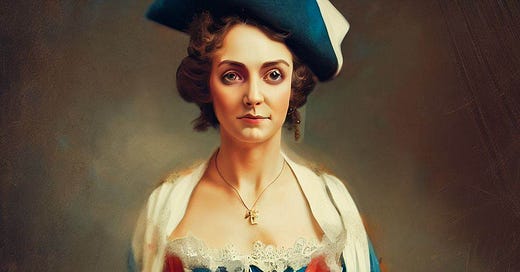The Allure of French: Language of Aristocracy and Cultural Influence in 19th Century Russia
During the 19th century, French was considered the language of aristocracy and high culture in Europe, with its allure extending far beyond the borders of France. Nowhere was this influence more apparent than in Russia, where the upper class not only embraced the French language but also adopted its customs and values. This article explores the phenomenon of Francophilia in 19th-century Russian aristocracy, delving into the cultural impact of the French language, its role in shaping Russian literature, and the legendary poet Alexander Pushkin's connection to this linguistic tradition.
French: The Language of the Russian Aristocracy
The fascination with French culture among the Russian elite began in the 18th century under the reign of Peter the Great and Catherine the Great, both of whom were avid Francophiles. The trend continued into the 19th century, with the Russian aristocracy adopting French as the language of high society, diplomacy, and culture.
The French language permeated every aspect of life for the Russian upper class. It was spoken in their homes, taught to their children, and used for intellectual pursuits. This widespread use of French was a symbol of refinement and sophistication, setting the aristocracy apart from the rest of Russian society.
The Influence of French on Russian Literature
The prevalence of the French language in 19th-century Russia had a profound impact on the country's literature. Many Russian writers, including Fyodor Dostoevsky, Leo Tolstoy, and Ivan Turgenev, incorporated French phrases and dialogues into their works, reflecting the linguistic reality of the era.
Alexander Pushkin: A Bilingual Literary Giant
Alexander Pushkin, widely regarded as the founder of modern Russian literature, epitomized the influence of French on the Russian literary scene. Born into an aristocratic family, Pushkin was educated in French from a young age and became fluent in both languages.
Pushkin's literary style was deeply influenced by French literature, particularly the works of François-René de Chateaubriand and Voltaire. He also corresponded with French literary figures and translated their works into Russian. This cross-cultural exchange enriched Pushkin's writing, allowing him to introduce new literary forms and styles into Russian literature.
Despite his affinity for French, Pushkin was a staunch advocate for the Russian language. In fact, he was instrumental in shaping the modern Russian literary language by infusing it with the richness and nuance of French. He boldly embraced the Russian vernacular, using it to create his most famous works, including "Eugene Onegin," "Boris Godunov," and "The Bronze Horseman."
The Decline of French Influence in Russia
The influence of the French language in Russia began to wane in the late 19th century, as nationalist sentiments grew and calls for the promotion of the Russian language intensified. The emancipation of the serfs in 1861 and the subsequent social reforms also contributed to the decline of French, as the Russian aristocracy gradually lost its status and power.
Conclusion
The widespread use of French among the Russian aristocracy in the 19th century had a lasting impact on the nation's culture and literature. The affinity for French language and culture fostered a unique linguistic landscape, shaping the works of legendary figures like Alexander Pushkin. As Russia entered a period of social and political upheaval, the influence of French gradually receded, making way for a renewed focus on the Russian language and identity. Nonetheless, the legacy of Francophilia in 19th-century Russia remains an intriguing and significant aspect of the nation's cultural history.




